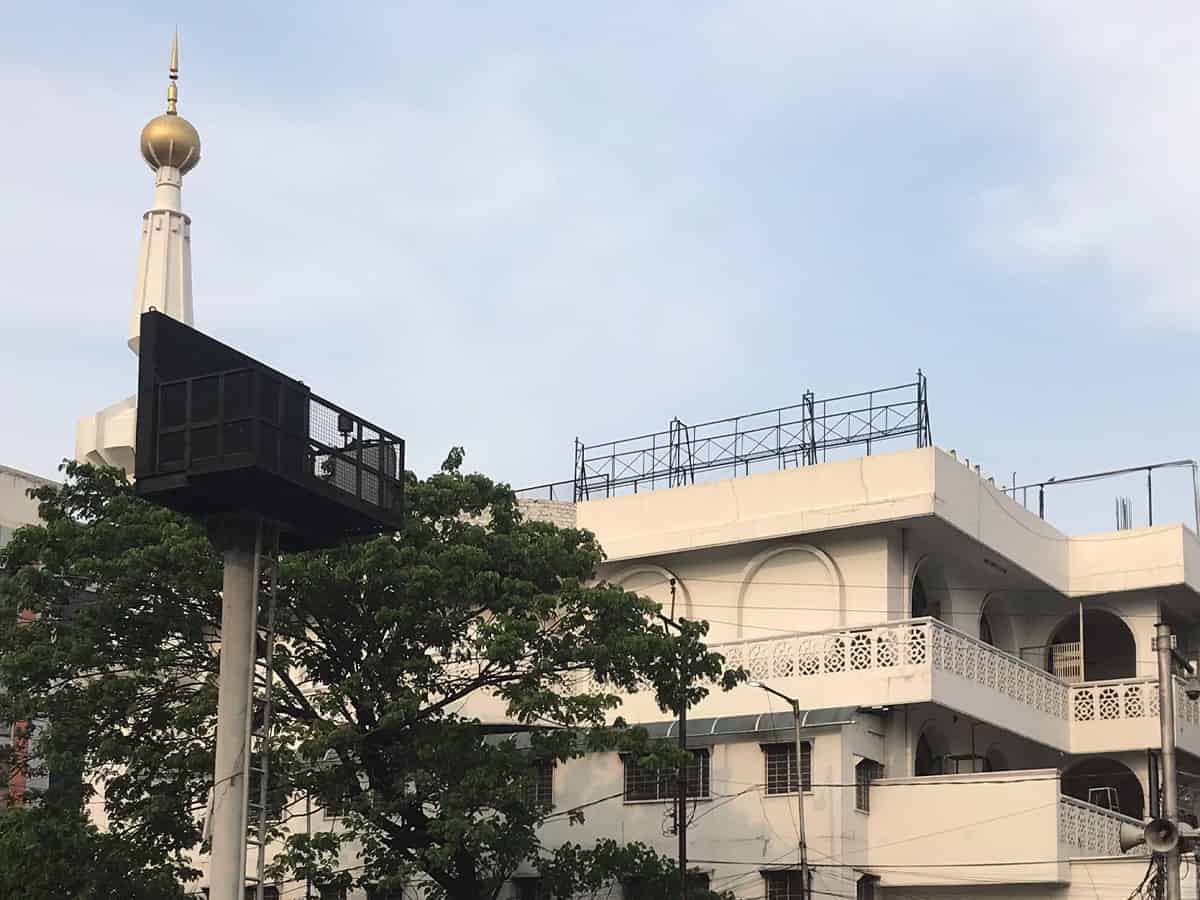
Hyderabad: As controversy persists over the offering of namaz by women in mosques, a few masjids in Hyderabad are getting ready to throw open their doors to female worshippers. The Masjid-e-Azizia in Mehdipatnam is taking the lead in this direction. Another masjid at Kakatiyanagar near Salar Jung Colony is also thinking along similar lines.
This follows an affidavit given by the All India Muslim Personal Law Board (AIMPLB) in the Supreme Court that Islam doesn’t bar the fair sex from offering congregational prayers in mosques. More than this the idea is to let young Muslim girls know their religion thoroughly so that they don’t fall prey to attempts by vested interests to convert them to other faiths.
The Masjid-e-Azizia, which is always at the forefront of breaking new grounds, is expected to allow women worshippers to attend Juma prayers along with the daily five-time namaz from next Friday. “The Masjid Committee is seized of the matter and reconsidering the pros and cons,” said the Masjid Khateeb, Maulana Waseem.
The spacious cellar portion is proposed to be allotted exclusively for women worshippers since it has a separate entrance. This virtually rules out the intermingling of male and female namazis. However, there’s going to be a rider: girls and women have to be accompanied by their parents or guardians. “We don’t want unpleasant things happening at the mosque,” remarked Maulana Waseem.
Islam is very particular about the segregation of genders in public places and lays stress on the importance of haya (modesty) for women. Despite all this, the Prophet did not stop women from attending congregational prayers. However, the presence of women in mosques ought to be shariah-compliant — adhering to the guidelines that they should not wear any perfume, fancy clothes, or jingling jewelry, say Ulema.
The Azizia Masjid is expected to make an announcement shortly inviting female devotees. Women worshippers are not new to this mosque. During the month of Ramzan, especially in the Taraweeh (nocturnal) prayers, they turn up in large numbers. But it will be the first time that the masjid would permit them to offer Juma namaz in the congregation. The masjid has taken this bold step heeding the AIMPLB’s statement in the apex court and decided to allow more females on its premises, it is said.
While agreeing that mosques are not ‘men only’ zones, Ulema, in general, are not in favour of allowing women to offer congregational prayers as they fear possible fitna (mischief) and unnecessary distractions on account of gender mix-up. During the Prophet’s time, women used to pray in the Masjid Nabvi. But Allah’s Apostle clearly stated that it is better for a woman to pray at a place that is more private and hidden. “A woman’s prayer in her house is better than her prayer in her courtyard, and her prayer in her bedroom is better than her prayer in her house.”
Ulema, who favour women’s presence in congregational prayers, want to break the myth that the community is not ready to give religious freedom to women. When the Islamophobic media is bent on spreading canards, they want to prove that there is no discrimination in Islam on gender grounds. Moreover, attempts by enemies to lure Muslim women to their faith could be stopped by allowing them to go to mosques and learn the religion. The Friday sermon is the most effective way of spreading the message, it is said.
Will this revolutionary measure by a few mosques catch on? Only time will tell.



